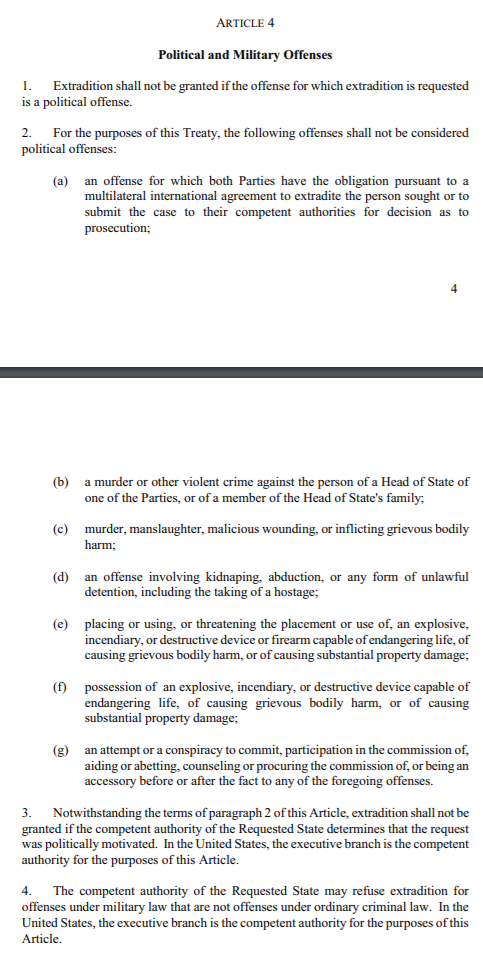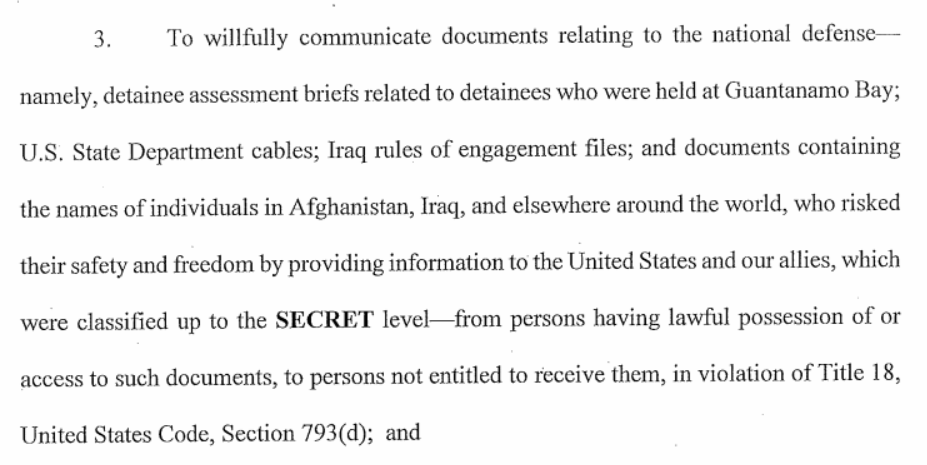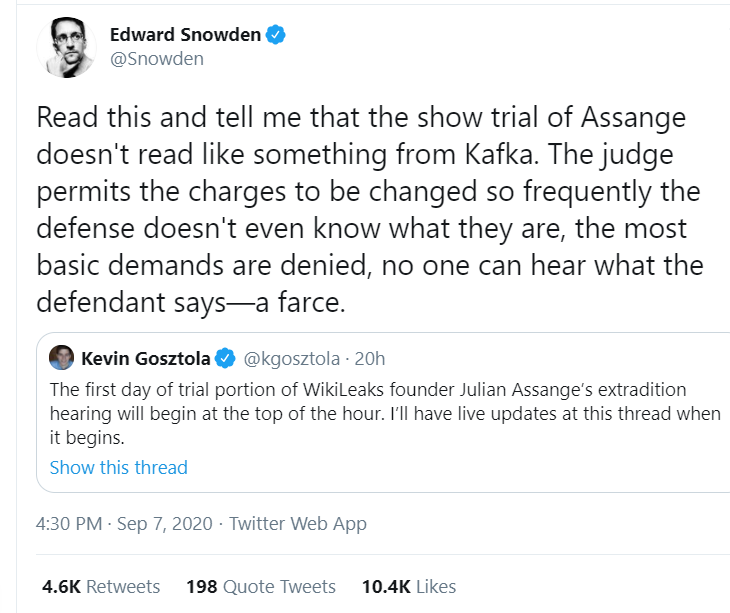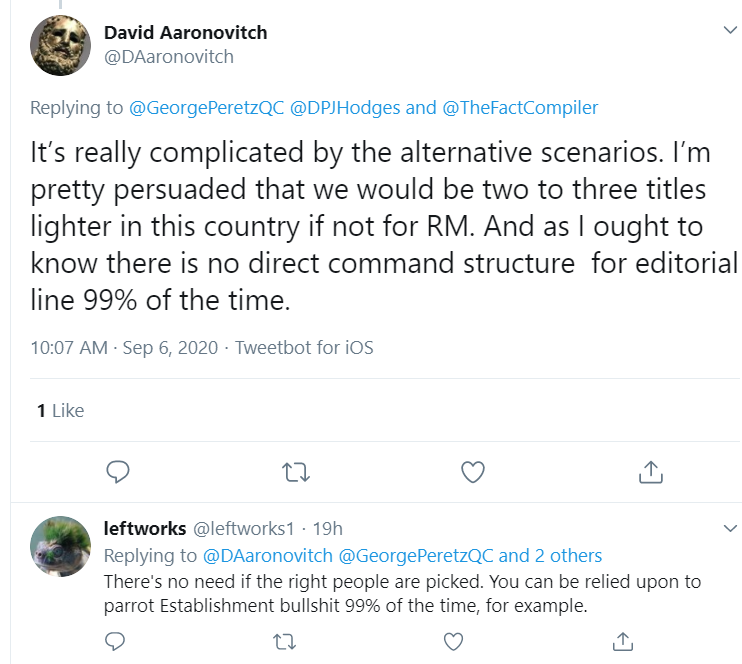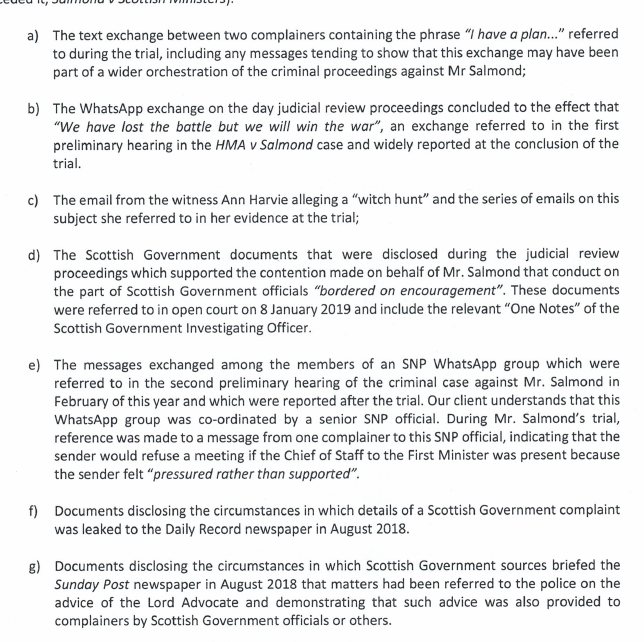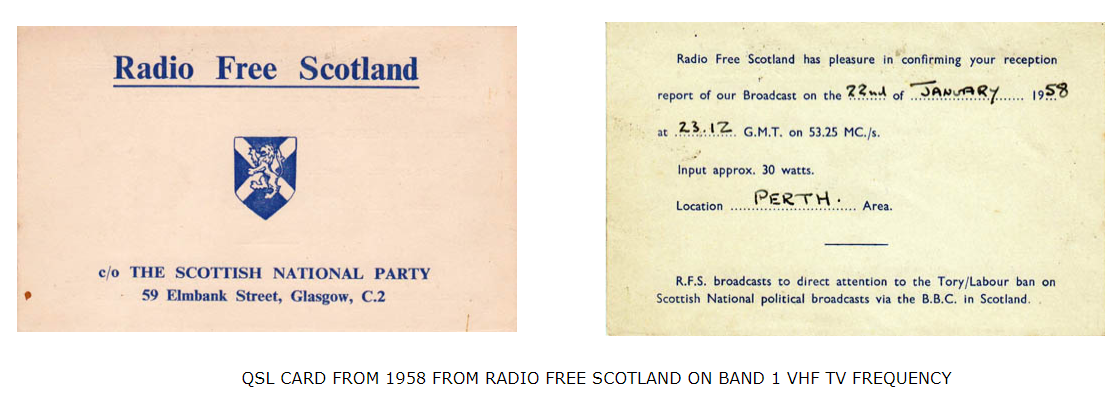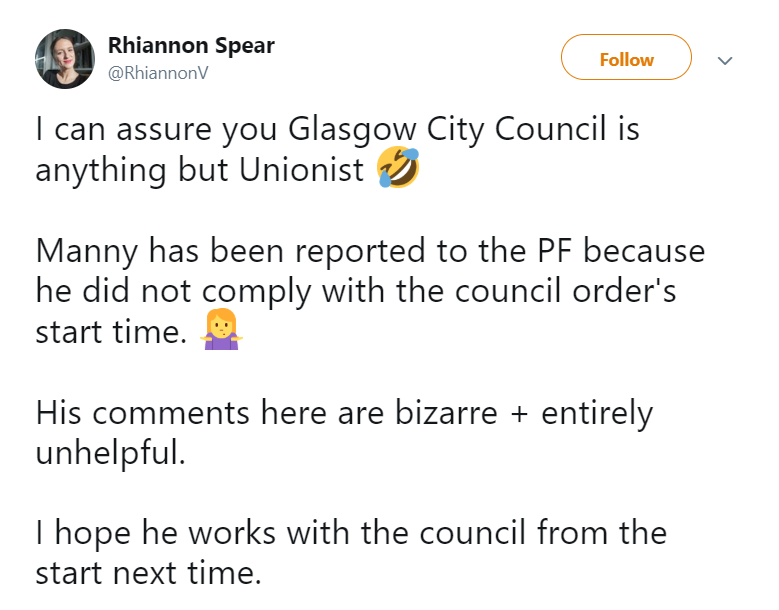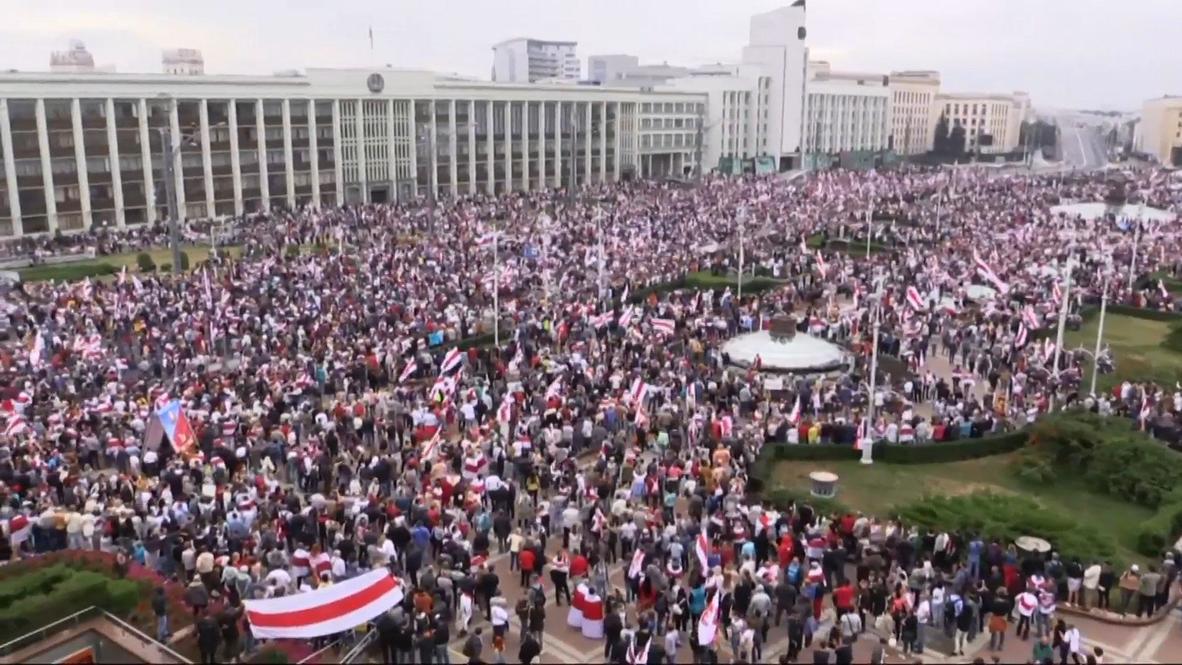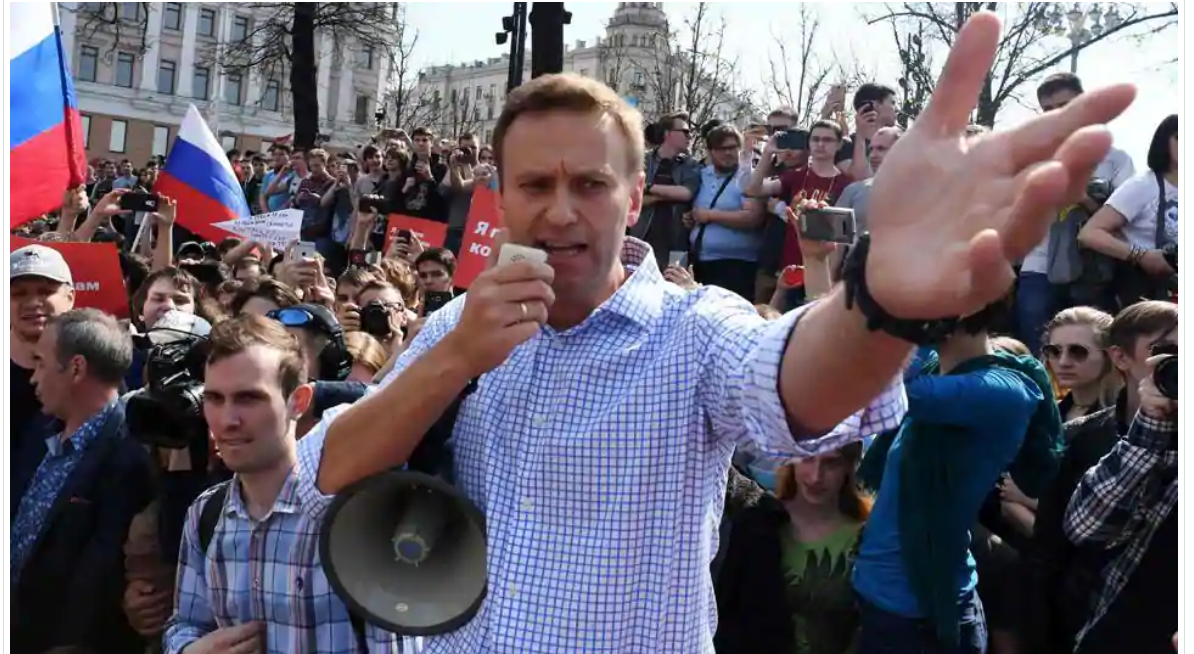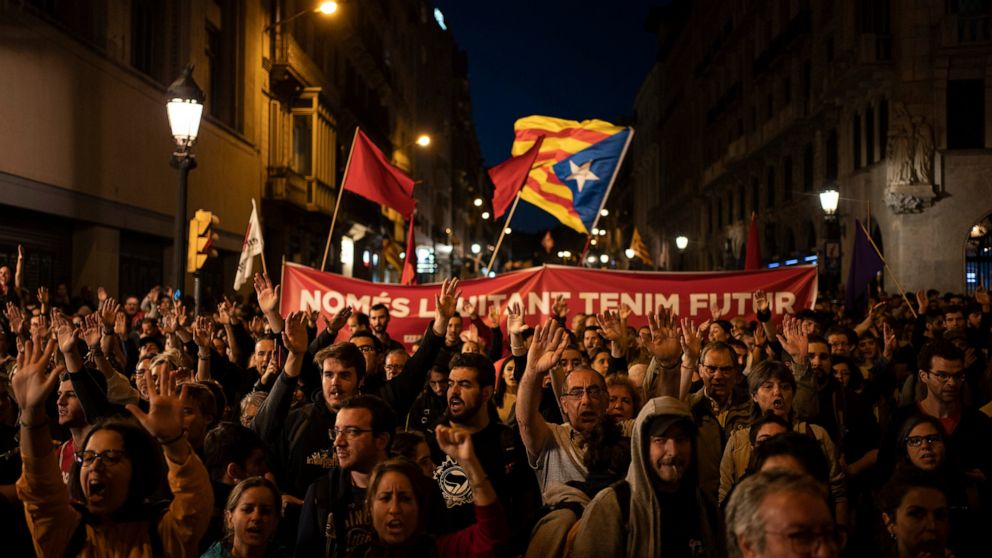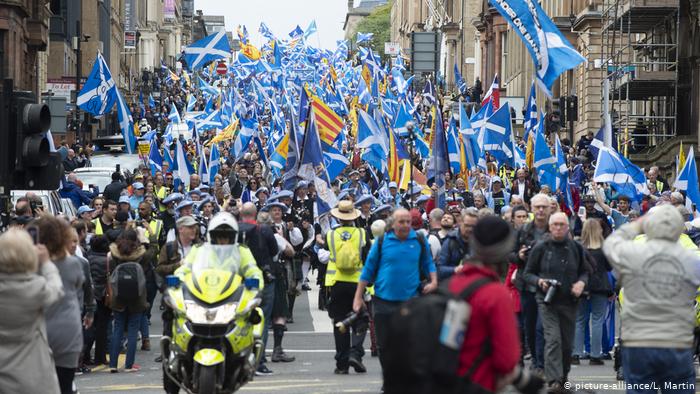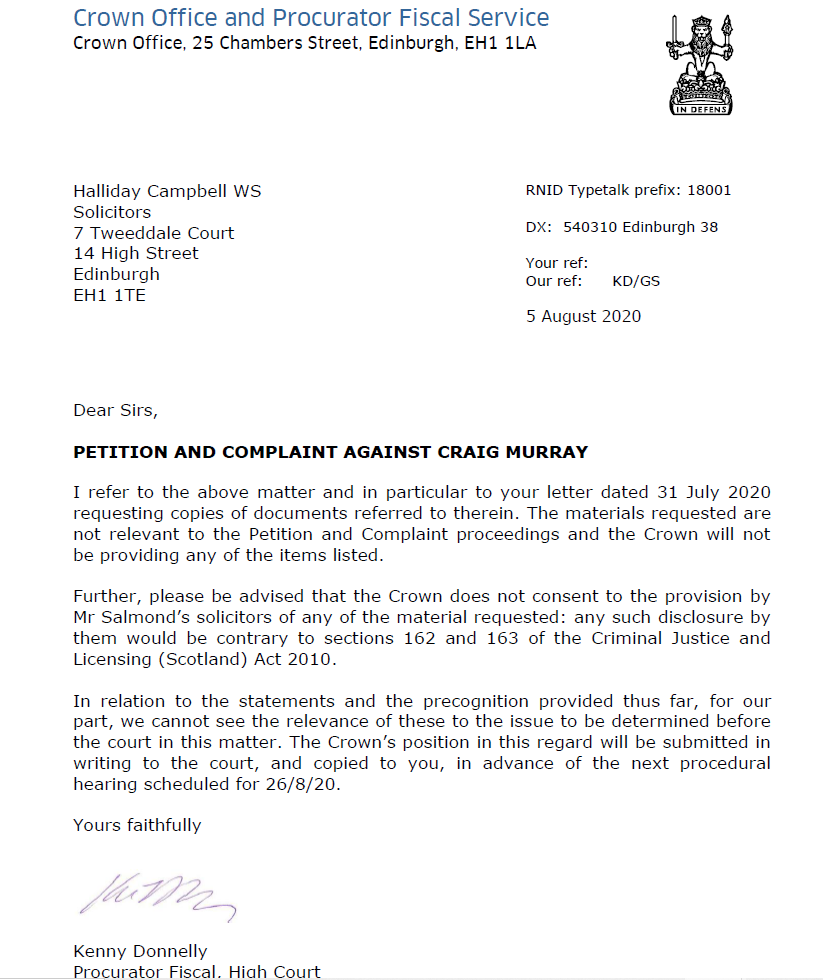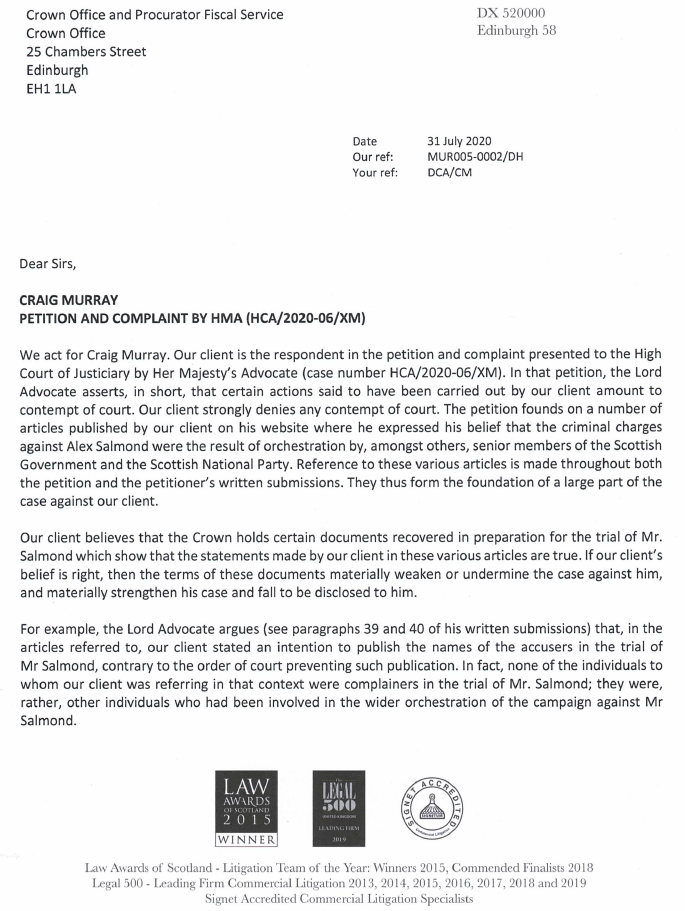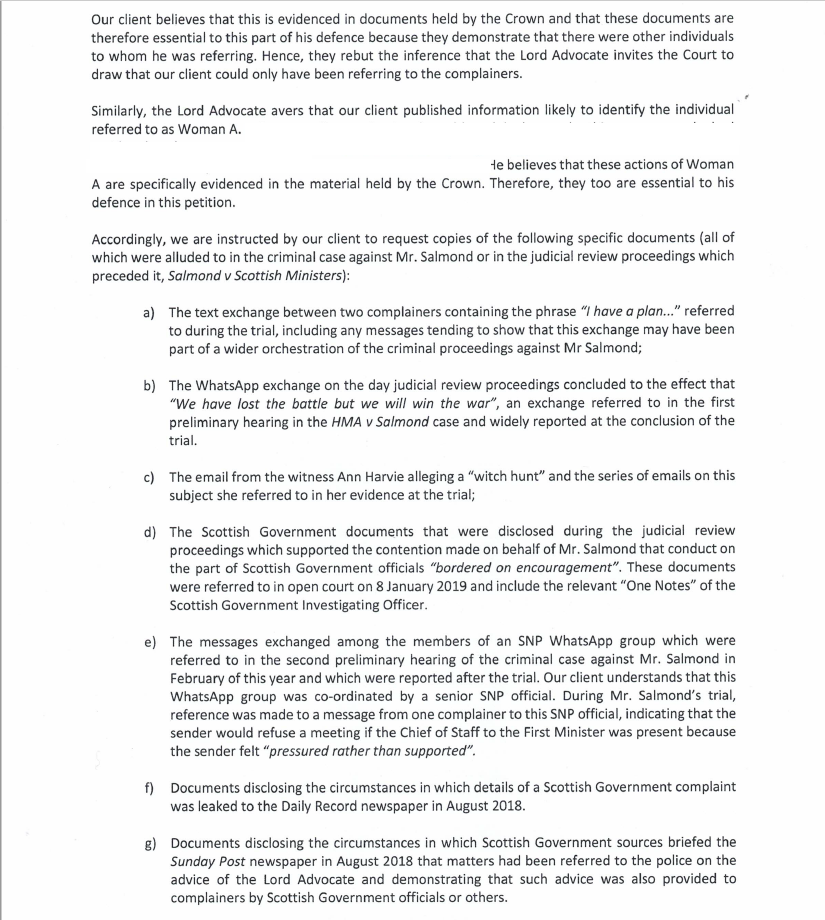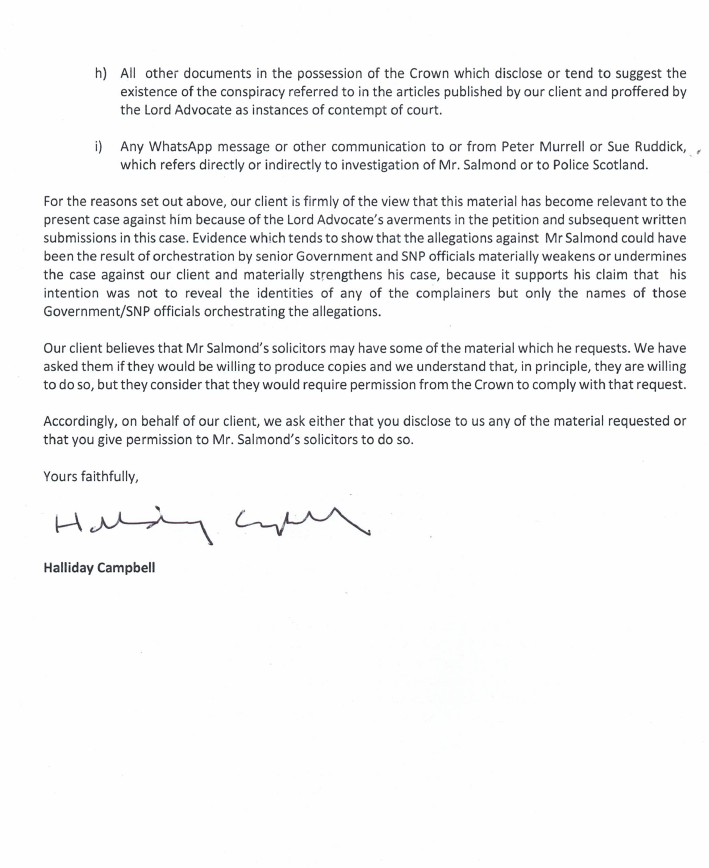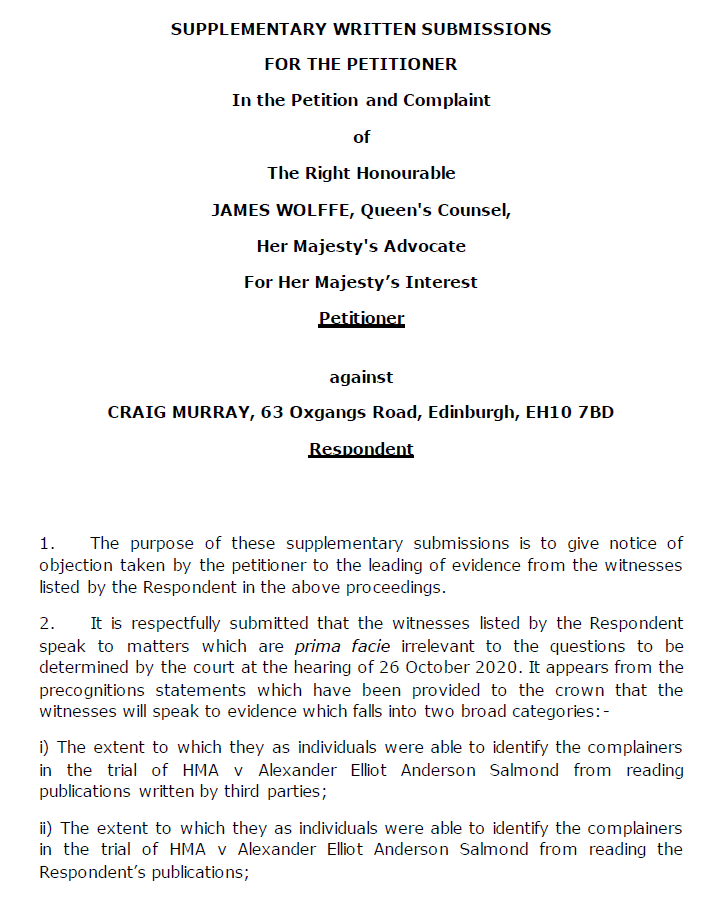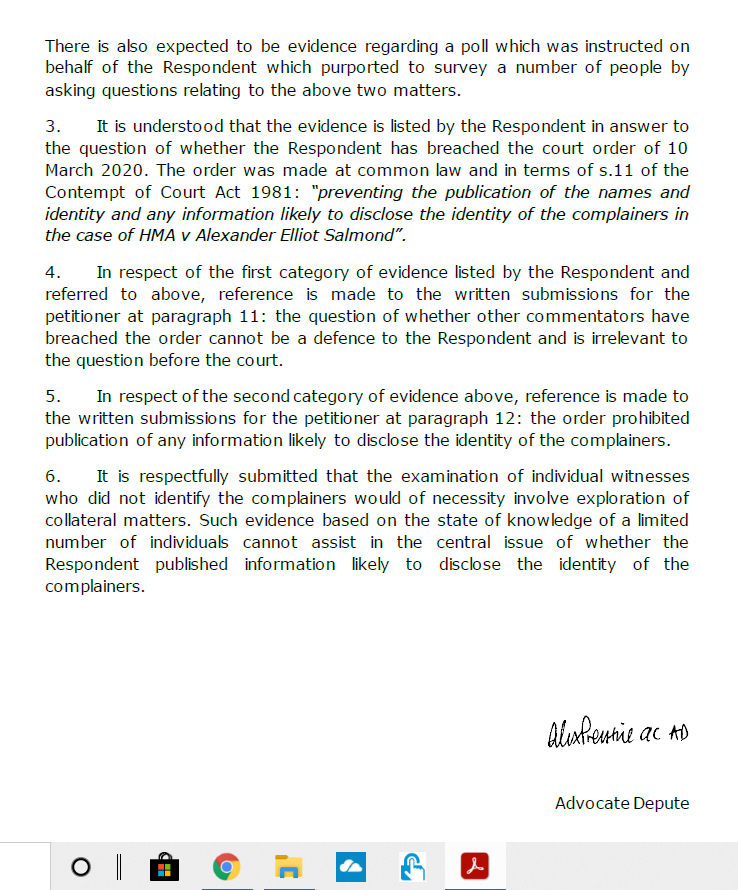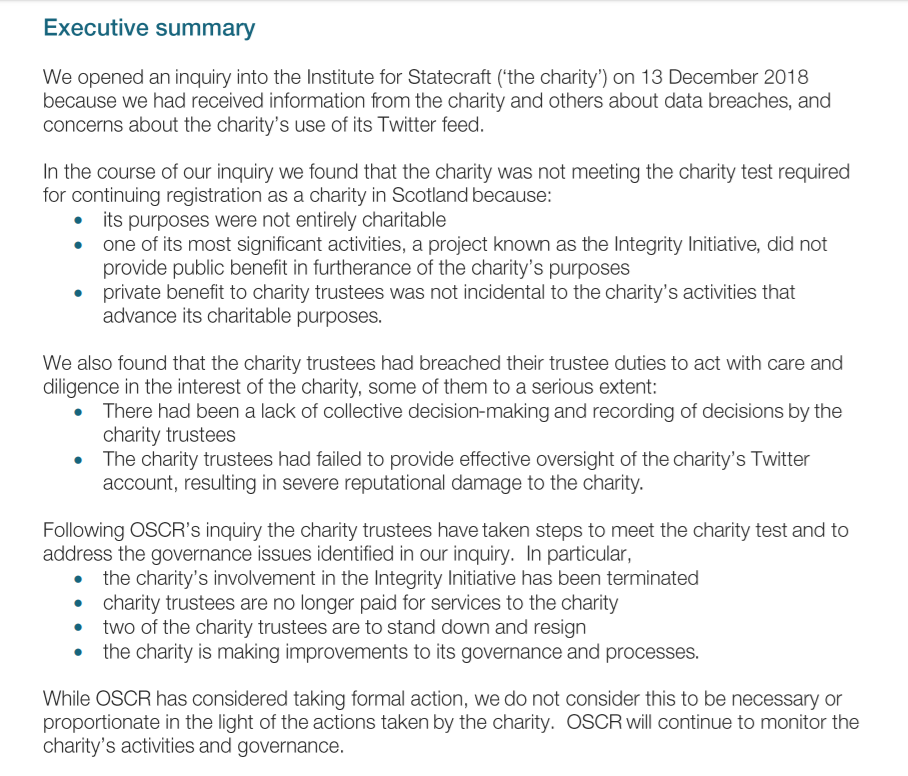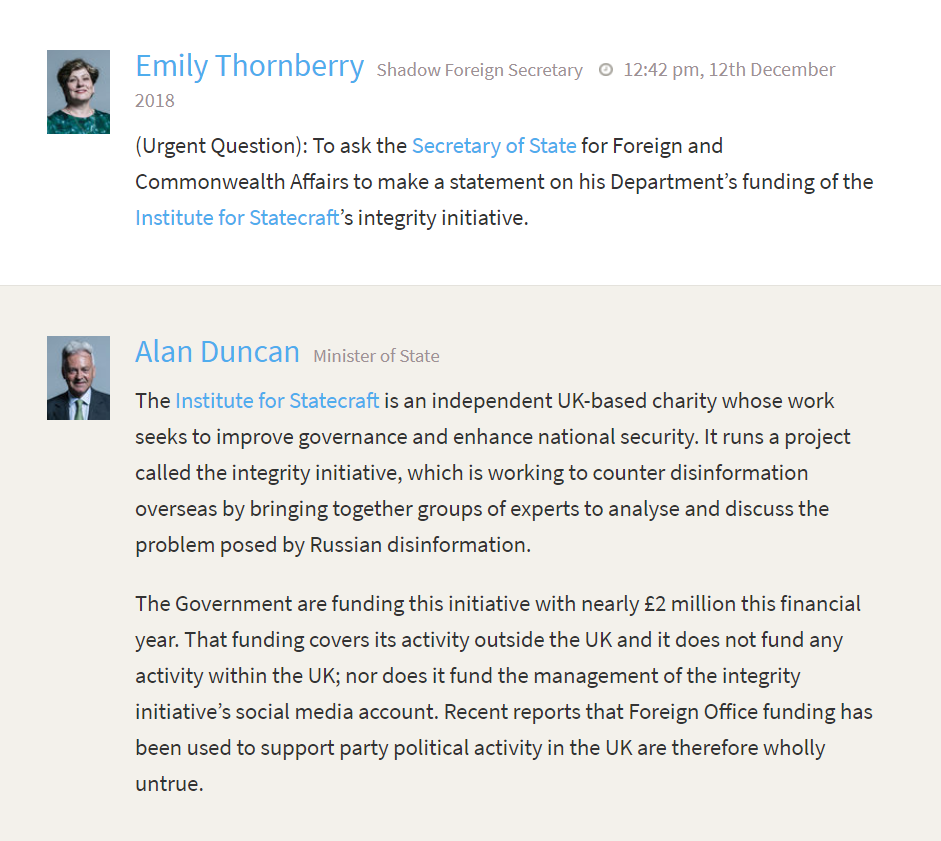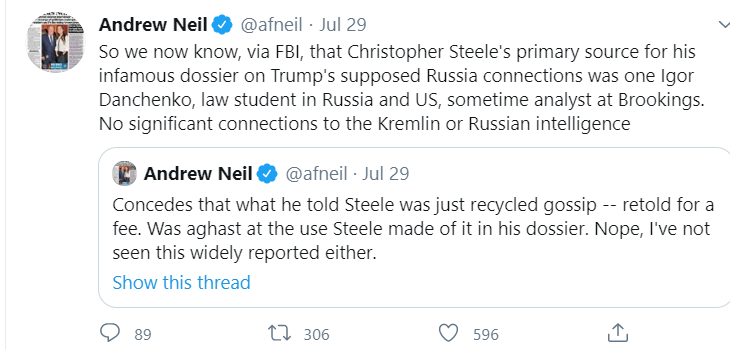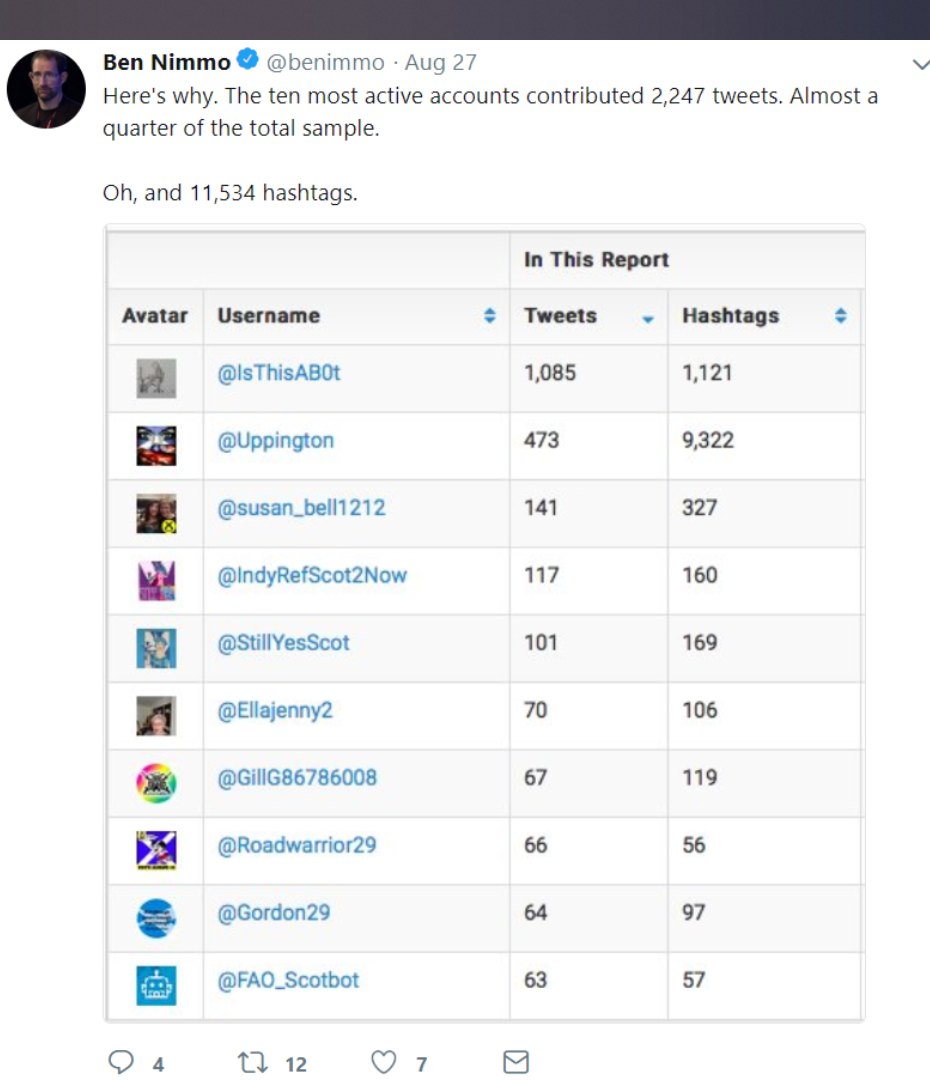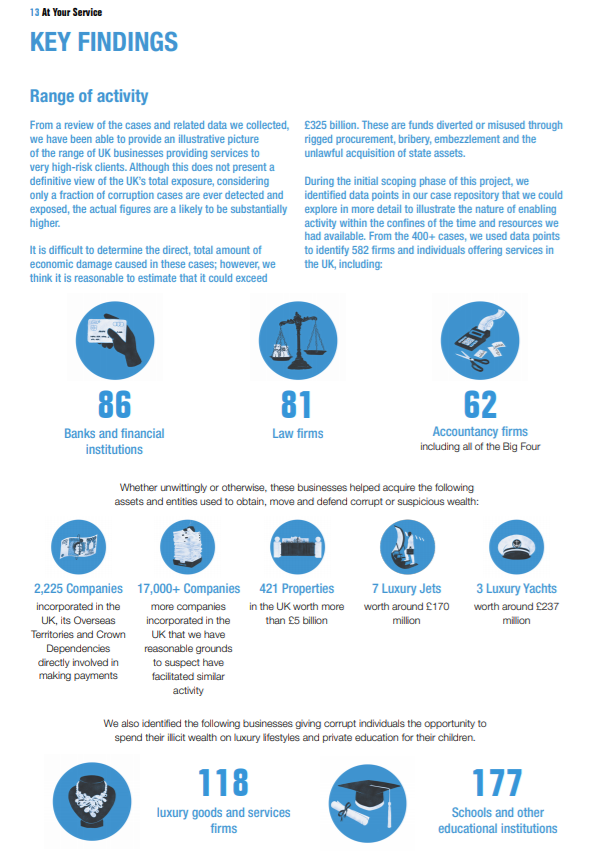The great question after yesterday’s hearing was whether prosecution counsel James Lewis QC would continue to charge at defence witnesses like a deranged berserker (spoiler – he would), and more importantly, why?
QC’s representing governments usually seek to radiate calm control, and treat defence arguments as almost beneath their notice, certainly as no conceivable threat to the majestic thinking of the state. Lewis instead resembled a starving terrier kept away from a prime sausage by a steel fence whose manufacture and appearance was far beyond his comprehension.
Perhaps he has toothache.
PROFESSOR PAUL ROGERS
The first defence witness this morning was Professor Paul Rogers, Emeritus Professor of Peace Studies at the University of Bradford. He has written 9 books on the War on Terror, and has been for 15 years responsible for MOD contracts on training of armed forces in law and ethics of conflict. Rogers appeared by videolink from Bradford.
Prof Rogers’ full witness statement is here.
Edward Fitzgerald QC asked Prof Rogers whether Julian Assange’s views are political (this goes to article 4 in the UK/US extradition treaty against political extradition). Prof Rogers replied that “Assange is very clearly a person of strong political opinions.”
Fitzgerald then asked Prof Rogers to expound on the significance of the revelations from Chelsea Manning on Afghanistan. Prof Rogers responded that in 2001 there had been a very strong commitment in the United States to going to war in Afghanistan and Iraq. Easy initial military victories led to a feeling the nation had “got back on track”. George W Bush’s first state of the union address had the atmosphere of a victory rally. But Wikileaks’ revelations in the leaked war logs reinforced the view of some analysts that this was not a true picture, that the war in Afghanistan had gone wrong from the start. It contradicted the government line that Afghanistan was a success. Similarly the Wikileaks evidence published in 2011 had confirmed very strongly that the Iraq War had gone badly wrong, when the US official narrative had been one of success.
Wikileaks had for example proven from the war logs that there were a minimum of 15,000 more civilian deaths than had been reckoned by Iraq Body Count. These Wikileaks exposures of the failures of these wars had contributed in large part to a much greater subsequent reluctance of western powers to go to war at an early stage.

Fitzgerald said that para 8 of Rogers’ report suggests that Assange was motivated by his political views and referenced his speech to the United Nations. Was his intention to influence political actions by the USA?
Rogers replied yes. Assange had stated that he was not against the USA and there were good people in the USA who held differing views. He plainly hoped to influence US policy. Rogers also referenced the statement by Mairead Maguire in nominating Julian for the Nobel Peace Prize:
Julian Assange and his colleagues in Wikileaks have shown on numerous occasions that they are one of the last outlets of true democracy and their work for our freedom and speech. Their work for true peace by making public our governments’ actions at home and abroad has enlightened us to their atrocities carried out in the name of so-called democracy around the world.
Rogers stated that Assange had a clear and coherent political philosophy. He had set it out in particular in the campaign of the Wikileaks Party for a Senate seat in Australia. It was based on human rights and a belief in transparency and accountability of organisations. It was essentially libertarian in nature. It embraced not just government transparency, but also transparency in corporations, trade unions and NGOs. It amounted to a very clear political philosophy. Assange adopted a clear political stance that did not align with conventional party politics but incorporated coherent beliefs that had attracted growing support in recent years.
Fitzgerald asked how this related to the Trump administration. Rogers said that Trump was a threat to Wikileaks because he comes from a position of quite extreme hostility to transparency and accountability in his administration. Fitzgerald suggested the incoming Trump administration had demonstrated this hostility to Assange and desire to prosecute. Rogers replied that yes, the hostility had been evidenced in a series of statements right across the senior members of the Trump administration. It was motivated by Trump’s characterisation of any adverse information as “fake news”.
Fitzgerald asked whether the motivation for the current prosecution was criminal or political? Rogers replied “the latter”. This was a part of the atypical behaviour of the Trump administration; it prosecutes on political motivation. They see openness as a particular threat to this administration. This also related to Trump’s obsessive dislike of his predecessor. His administration would prosecute Assange precisely because Obama did not prosecute Assange. Also the incoming Trump administration had been extremely annoyed by the commutation of Chelsea Manning’s sentence, a decision they had no power to revoke. For that the prosecution of Assange could be vicarious revenge.
Several senior administration members had advocated extremely long jail sentences for Assange and some had even mooted the death penalty, although Rogers realised that was technically impossible through this process.
Fitzgerald asked whether Assange’s political opinions were of a type protected by the Refugee Convention. Rogers replied yes. Persecution for political opinion is a solid reason to ask for refugee status. Assange’s actions are motivated by his political stance. Finally Fitzgerald then asked whether Rogers saw political significance in the fact that Assange was not prosecuted under Obama. Rogers replied yes, he did. This case is plainly affected by fundamental political motivation emanating from Trump himself.
James Lewis QC then rose to cross-examine for the prosecution. His first question was “what is a political opinion?” Rogers replied that a political opinion takes a particular stance on the political process and does so openly. It relates to the governance of communities, from nations down to smaller units.
Lewis suggested that Assange’s views encompassed the governance of corporations, NGOs and trade unions. They could not therefore be considered as “political opinion”. Rogers replied that the province of the political in the last fifty years or so now includes much more beyond the strict governmental process. Assange particularly discusses relationships between government and corporations and the latter’s influence on government and society as part of a wider ruling establishment.
Lewis then asked “is simply being a journalist a person who expresses political opinions?” Rogers replied not necessarily; there were different kinds of journalist. Lewis than asked “So just being a journalist or publisher does not necessarily mean that you have political opinions, does it?” Rogers replied “not necessarily, but usually.” Lewis then suggested that the expression of editorial opinion was what constituted a political view in a journalist. Rogers replied that was one way, but there were others. Selection of material to publish could manifest a political view.
Lewis then rattled off a series of questions. Is transparency a political opinion? Does Assange hold the view that Governments may never hold secrets? Should that transparency enable putting individuals at risk? There were more.
Rogers replied that these questions did not permit of binary answers.
Lewis then took Rogers to Assange’s speech to the Stop the War Coalition, where he stated that the invasion of Poland at the start of the Second World War was the result of carefully concocted lies. Did Prof Rogers agree with that view? What political opinion did that view represent? Rogers replied it represented a strong political opinion and a particular view on the origin of war. Lewis then quoted another alleged comment of Assange, “Journalists are war criminals” and asked what political opinion that represented. Rogers replied that it represented a suspicion of certain journalistic practices.
Rogers said that he had never said he supported or identified with Assange’s views. He strongly disagreed with some. But that they were coherent political views there was no doubt.
Lewis then read out a lengthy quote by Assange to the effect that strongly anti-transparency governments will always result in more leaks, followed by more restrictions and this would set up a cycle. Lewis asked Rogers what political view this could be said to represent. Rogers replied it was an interesting analysis of the working of highly autocratic systems. Their concern with secrecy leads to increased leaks which decrease their security. He was not sure if it was explicit, but he believed Assange may be positing this as a new development made possible by the internet. Assange’s thesis was that autocratic regimes harbour the seeds of their own destruction. It was not a traditional view held by political scientists but it was worth consideration.
Lewis now changed tack. He stated that Prof Rogers was appearing as a “so-called expert witness” under a continuing obligation to be unbiased. He had a duty to consider all supporting evidence. US Assistant Attorney Gordon Kromberg had submitted an affidavit explicitly denying there was any political motivation for the prosecution, stating that it is evidence based. Why did Prof Rogers not mention the Kromberg statement in his report? An unbiased expert witness would take into account Kromberg’s statement.
Rogers replied that he spoke from his expertise as a political scientist, not a lawyer. He accepted that Kromberg had made his statement but believed a wider view to be more important.
Lewis stated that Kromberg’s first affidavit stated that “based on the available evidence and applicable law a grand jury had approved the charges.” Why had Rogers not mentioned the grand jury? Rogers said that he had taken a wider view about why there was a decision now to prosecute and not in 2011, why Kromberg’s statement was being made now after a gap of eight years. This was anomalous.
Lewis then asked “I want to consider why you did not consider the opposite view. Have you seen the evidence?” At this point he was grinning very strangely indeed, looking up at the judge, leaning back with one arm wide across his chair back, in some sort of peculiar alpha male gesture. I believe Rogers’ videolink only gave him a wide view of the whole courtroom, so how much he could see of the body language of his questioner I am unsure.
Rogers said he had seen the evidence. Lewis gurned in wild-eyed triumph “you cannot have seen the evidence. The evidence has only been seen by the grand jury and not released. You cannot have seen the evidence.” Rogers apologised, and said he had understood Lewis to mean Kromberg’s affidavit as the evidence. Rogers went on to say that less than 24 hours ago he had received an evidence bundle of 350 pages. It was unfair to expect him to have a precise mental picture of every document.
Lewis then returned to a Gordon Kromberg affidavit which said that prosecutors have a code which bars them from taking politically motivated decisions. Rogers replied that may be right in theory, but was untrue in practice, particularly in the USA where a much higher percentage of senior officials in the Department of Justice were political appointees who changed with each administration. Lewis asked Rogers whether he was alleging the prosecutors did not follow the code outlined by Kromberg. Rogers replied you had to consider the motivation of those above the prosecutors who influenced their decisions. “What you are giving me is a fair representation of how federal prosecutors are supposed to do their work. But they work as those above direct them.”
Lewis repeated that the code excludes political motivation for prosecution. Was Rogers claiming that Gordon Kromberg was acting in bad faith? Rogers replied no, but he was acting under political direction. The timing of this indictment after eight years was the key. Lewis asked whether that mattered if a crime had been committed. He referred to historic prosecutions of those soldiers who had allegedly committed crimes in Northern Ireland over twenty years ago. Was it political motivation that led to new prosecutions now? Rogers said this was more about bad faith.
Lewis asked if Rogers understood what Assange was being prosecuted for. Was he being prosecuted for publishing the collateral murder video? Rogers replied no, the charges were more specific and mostly related to the Espionage Act. Lewis stated the majority of charges were focused on complicity in theft and on hacking. Rogers responded there was obviously a wider political question as to why acts were being done in the first place. Lewis stated that on the question of publication, charges only related to the unredacted names of sources. Rogers said that he understood that was what the prosecution is saying, but was not agreed by the defence. But the question remained, why is this being brought now? And you could only look at that from the point of view of developments in American politics over the last twenty years.
Lewis asked Rogers to confirm that he was not saying US prosecutors were acting in bad faith. Rogers replied that he would hope not, at that level. Lewis asked if Rogers’ position was that at a higher level there had been a political decision to prosecute. Rogers said yes. These were complex matters. It was governed by political developments in the US since about 1997. He wished to speak to that… Lewis cut him off and said he preferred to look at evidence. He cited a Washington Post article from 2013 which stated that there had been no formal decision not to prosecute Assange by the Obama administration (this was the same article Lewis had quoted yesterday to Feldstein, on which he had been called out by Edward Fitzgerald for selective quotation). Rogers replied yes, but that must be considered in a wider context.
Lewis again refused to let Rogers develop his evidence, and gave the quotes from Assange’s legal team, again as given yesterday to Feldstein, to the effect they had in 2016 not been informed charges had been dropped. Rogers replied that was just what you would expect from Wikileaks at that time. They did not know and were bound to be cautious.
Lewis: Do you accept there had been a continuing investigation from Obama to Trump administrations.
Rogers: Yes, but we do not know at what level of intensity.
Lewis: Do you accept that there was no decision not to prosecute by Obama
Rogers: There was no decision to prosecute. It did not happen.
Lewis: How could they prosecute when Assange was in the Embassy?
Rogers: That would not preclude a prosecution going ahead and charges being brought. That might be a way to bring pressure on Ecuador.
Lewis: Assange’s lawyer said there was no decision not to prosecute by the Obama administration.
Rogers: I have accepted there was no decision not to prosecute. But there was no prosecution and it was considered.
Lewis: Judge Mehta said there was ongoing investigation of others beside Manning. And Wikileaks tweeted Assange’s willingness to come to the USA to face charges if Manning was granted clemency.
Rogers: Obviously Assange and his lawyer could not be sure of the situation. But it must be understood that bringing Julian Assange to the USA for a major trial of someone who was perceived by many Trump supporters and potential Trump supporters as an enemy of the state, might be of crucial political benefit to Mr Trump.
Lewis now responded that Rogers was not a real expert witness and “had given a biased opinion in favour of Julian Assange”.
Edward Fitzgerald QC then re-examined Prof Rogers for the defence. He said that Mr Lewis had appeared to see something sinister in Mr Assange’s statement that the invasion of Poland and second world war had been started by lies. To what lies did Prof Rogers think that Assange was referring? Rogers replied the lies of the Nazi Regime. Fitzgerald asked if this was a fair point. Rogers replied yes.
Fitzgerald read the context of Assange’s statement which also referred to lies starting the Iraq war. Rogers agreed that lies leading to war was a consistent Assange political theme. Fitzgerald then invited Rogers briefly to summarise the consequences of the change of US administration. Rogers stated that under Trump, the narrative from senior politicians on Wikileaks had changed.
The Bush administration had viewed the Iraq war as essential, with the support of most American people. That view had gradually changed until Obama had won basically on a “withdraw from Iraq” ticket. Similarly the Afghan war had been thought winnable but gradually the political establishment changed their mind. This shift in view was partly due to Wikileaks. By 2015/6 American politics had moved on from the wars and there was no political interest in prosecuting Wikileaks.
Then Trump came in with a completely new attitude to the entire fourth estate and to openness and accountability of the executive. That had led to this prosecution. Fitzgerald directed Rogers to a Washington Post article which stated:
The previously undisclosed disagreement inside the Justice Department underscores the fraught, high-stakes nature of the government’s years-long effort to counter Assange, an Internet-age publisher who has repeatedly declared his hostility to U.S. foreign policy and military operations. The Assange case also illustrates how the Trump administration is willing to go further than its predecessors in pursuit of leakers — and those who publish official secrets.
Rogers agreed this supported his position. Fitzgerald then asked about Lewis’s comparison with prosecution of British soldiers for historical crimes in Northern Ireland. Rogers agreed that their prosecution in no way related to their political opinions, so the cases were not comparable. Rogers’ final point was that four months after Barr took office as attorney general, charges were increased from a single one to eighteen. This was a pretty clear indication of political pressure being put on the prosecutorial system.
TREVOR TIMM
The afternoon witness was Trevor Timm, co-founder of the Freedom of the Press Association in San Francisco, again via videolink. You can see his full evidence statement here. The Freedom of the Press Association teaches and supports investigative journalism and seeks to document and counter violations of media freedom in the USA.
Mr Timm testified that there is a rich history in the USA of famous reporters covering defence and foreign affairs related matters drawing upon classified documents. In 1971 the Supreme Court had decided the government could not censor the NYT from publishing the Pentagon Papers. There have been several instances over history where the government had explored using the Espionage Act to prosecute journalists but no prosecution had ever materialised because of First Amendment constitutional rights.
For the defence, Mark Summers QC put to Mr Timms that this was the prosecution’s case: Chelsea Manning had committed a crime in whistleblowing. So any act that helped Chelsea Manning or solicited material was also a crime. Timm replied this was not the law. It was standard practice for journalists to ask sources for classified material. The implications of this prosecution would criminalise any journalist in receipt of classified intelligence. Virtually every single newspaper in the United States had criticised this decision to prosecute on these grounds, including those that have opposed Wikileaks’ general activities.
This was the only attempt to use the Espionage Act against a person not in government employ apart from the AIPAC case, which had collapsed for that reason. Many great journalists would have been caught by this kind of prosecution, including Woodward and Bernstein for the cultivation of Deep Throat.
Summers asked about the prosecution’s characterisation of the provision of a drop box by Wikileaks to a whistleblower as criminal conspiracy. Timm replied that the indictment treats possession of a secure drop box as a criminal offence. But the Guardian, Washington Post, New York Times and over 80 other news organisations have secure drop boxes. The International Committee of Investigative Journalists has a drop box with a specific “leak to us” page requesting classified documents. Timms’ own foundation had developed in 2014 a secure drop box which they taught, and which had been adopted by multiple news organisations in the USA.
Summers asked if news organisations advertised drop boxes. Timm replied yes. The New York Times links to its secure drop box in its social media posts. Some even took out paid adverts for whistleblowers. Summers asked about the “most wanted list” which the prosecution characterised as criminal solicitation. Timm replied that multiple respectable news organisations actively solicited whistleblowers. The “most wanted” list had been a Wiki document which had been crowdsourced. It was not a Wikileaks document. His own foundation had contributed to it along with many other media organisations. Summers asked if this was criminal activity. Timm replied in the negative.
Summers asked Timm to expound his thoughts on the Senate Intelligence Committee Report on Torture in 2014. Timm said that this vital and damning report on CIA involvement in torture had been much redacted and was based on thousands of classified documents not made available to the public. Virtually the entire media had therefore been involved in trying to obtain the classified material that revealed more of the story. Much of this material was classified Top Secret – higher than the Manning material. Many newspapers appealed for whistleblowers to come forward with documents and he had himself published an appeal to that effect in the Guardian.
Summers asked if it had ever been suggested to Timm this was criminal behaviour. Timm replied no, the universal belief had been that it was first amendment protected free speech. The current indictment is unconstitutional.
James Lewis QC then cross-examined for the prosecution. He said this was claimed to be expert opinion, but did Timm know what that meant in UK law? Timm said he had an obligation to explain his qualification and to tell the truth. Lewis replied that he was also supposed to be objective, unbiased and have no conflict of interest. But the Free Press Foundation had contribute to Assange’s defence fund. Lewis asked how much? Timm replied US$100,000.
Lewis asked if there were any conditions under which the Foundation would get their money back. Timm replied no, not to his knowledge. Lewis asked whether Timm would feel personally threatened were this case to go to prosecution. Timm replied that would represent a threat to many thousands of journalists. The Espionage Act was so widely drafted it would even pose a threat to purchasers and readers of newspapers containing leaked information.
Lewis said that Timm had testified that he had written advocating a leaking of CIA material. Did he fear he would be prosecuted himself? Timm replied no, he had not asked for material to be leaked to himself. But this prosecution was a real threat to thousands of journalists represented by his organisation.
Lewis said that the prosecution position is that Assange is not a journalist. Timm replied that he is a journalist. Being a journalist does not mean working for the mainstream media. There was a long legal history of that going back to pamphleteers at the time of Independence.
This cross examination was not going so well, and Lewis reached yet again for Gordon Kromberg’s affidavit as for a comfort blanket. Kromberg had sworn that the Department of Justice takes seriously the protection of journalists and that Julian Assange is no journalist. Kromberg had further sworn that Julian Assange was only being prosecuted for conspiring to illegally obtain material, and for publishing unredacted names of informants who would be at risk of death. The government is going out of its way to stress it is not prosecuting journalism.
Timm replied that he based his opinion on what the indictment said, not on the Department of Justice press release from which Lewis had read. Three of these charges relate to publication. The other charges relate to possession of material. Lewis said that Timm was missing the hacking allegation which was central to Count 1 and several other counts. Lewis quoted an article in the Law Review of New York Law School, which said that it was illegal for a journalist to obtain material from the wreckage of a crashed airplane, from an illegal wiretap or from theft, even if the purpose were publication. Would it not be illegal to conspire with a source to commit hacking?
Timm replied that in this case the allegation appeared to be that the hacking was to protect the identity of the source, not to steal documents. Protection of sources was an obligation.
Lewis then asked Timm if he had seen the actual evidence that supports the indictment. Timm replied only some of it, in particular the Jabber script of the messages allegedly between Assange and Manning. Lewis said Timm could not have seen all the evidence as it had not been published. Timm replied he had not said he had seen it all. He had seen the alleged Assange/Manning messages which had been published.
Lewis said that Assange had published unredacted material which put lives in danger. That was the specific charge. Timm replied that, assuming the assertion was true, the prosecution was still unconstitutional. There was a difference between responsible and irresponsible, and legal and illegal. An act could be irresponsible, even blameworthy, and still not illegal.
There had never been a prosecution for publication of names of informants, even where they were allegedly put in harm’s way. Following the official line about harm to informants precisely due to Wikileaks’ publication of the cables, Senator Joe Liebermann had introduced the Shield Bill into Congress. It failed specifically on First Amendment grounds. The episode tells us two things; firstly that Congress considered publication of informants’ names was not illegal and secondly that neither did they wish to make it illegal.
Lewis quoted a Guardian editorial condemning the publication of names, and stated that the Washington Post, New York Times, El Pais and Der Spiegel among many others had condemned it too. Timm replied that still did not make it illegal. The US government ought not to be the arbiter of whether an editorial decision is correct or not. Timm also felt it worth noting in passing that all of those media outlets whose opinions Lewis held in such high regard, had condemned the current attempt at prosecution.
Lewis asked why we should prefer Timm’s opinion to that of the courts. Timm replied that his opinion was in line with the courts. Countless decisions over centuries upheld the First Amendment. It was the indictment which was out of tune with the courts. The Supreme Court had expressly stated that there was no balance of harm argument in First Amendment cases.
Lewis asked Timm what qualification he had to comment on legal matters. Timm replied he had graduated from Law School and had gained admission to the New York Bar, but rather than practice he had worked on academic analysis of media freedom cases. The Foundation often joined in with litigation in support of media freedom, on an amicus basis.
Lewis said (in a tone of disbelief) that Timm had stated this prosecution was part of “Trump’s war on journalism”. Timm cut in niftily. Yes, he explained, we keep track on Trump’s war on journalism. He has sent out over 2,200 tweets attacking journalists. He has called journalists “enemies of the people”. There is a great deal of available material on this.
Lewis asked why Timm had failed to note that US Assistant Attorney Gordon Kromberg had specifically denied that there was a war on journalists? Timm said he had addressed these arguments in his evidence, though without specifically referencing Kromberg. Lewis stated that Timm had also not addressed Kromberg’s assertion that Assange is not charged simply with receipt of classified material. Timm replied that is because Kromberg’s assertion is inaccurate. Assange is indeed charged with offences encompassing passive receipt. If you get to count 7, for example and look at the legislation it charges under, it does precisely criminalise passive receipt and possession.
Lewis asked why Timm had omitted Kromberg’s reference to the grand jury decision? Timm replied that it meant very little: 99.9% of grand juries agree to return a prosecution. An academic study of 152,000 grand juries had revealed only 11 which had refused the request of a federal prosecutor to prosecute.
Lewis asked Timm why he had failed to mention that Kromberg asserted that a federal prosecutor may not take political considerations into account. Timm replied that did not reflect reality. Prosecution was one prong of many in President Trump’s war on journalism. Lewis asked whether Timm was saying that Kromberg and his colleagues were acting in bad faith. Timm replied no, but there had been a story in the Washington Post that more senior federal prosecutors had been opposed to the prosecution as contrary to the First Amendment and thus unconstitutional.
Mark Summers then re-examined for the defence. He said that Kromberg presents two grounds for Assange not being a journalist. The first is that he conspired with Manning to obtain confidential material. Timm replied that this cultivating of a source was routine journalistic activity. The indictment is precluded by the First Amendment. The Supreme Court has ruled that even if a journalist knows that material is stolen (but not by him), he may still publish with entitlement to First Amendment protection.
Summers asked Timm about Lewis’s comparison of Assange’s contact with Manning to theft from an airplane wreck or illegal wiretap. Timm said this alleged offence did not reach that bar. The government does not allege that Assange himself helped Manning to steal the material. It alleges he provided help to crack a code that enabled Manning better to protect his identity.
Lewis here interrupted with a lengthy quote from one of Kromberg’s affidavits, to the effect that the government was now alleging that Assange helped Manning hack a password in order to facilitate obtaining classified information. Timm said yet again Kromberg’s affidavit did not appear to match the actual indictment. The claim there is that the password hacking “may have made it more difficult to identify Manning”. It is about source protection, not theft. Source protection is normal journalistic activity.
Summers stated that Kromberg’s second justification for stating that Assange is not a journalist was that he published the names of sources. Timm replied that he understood these facts were disputed, but in any event the Supreme Court had made plain such publication still enjoyed First Amendment protection. Controversial editorial choice did not render you “not a journalist”.
Summers asked Timm if he accepted Kromberg’s characterisation that Assange was only being prosecuted for alleged hacking and for publication of names. Timm said he did not. Counts 16, 17 and 18 were for publishing. All the other counts related to possession. Count 7 for example was for “knowingly unlawful receiving and obtaining”. That described passive receipt of classified information and would criminalise much legitimate journalistic activity. Huge swathes of defence, national security and foreign affairs reporting would be criminalised.
COMMENT
The defence have been attempting the last two days to make a rational case that this is a politically motivated prosecution and therefore not eligible under the terms of the UK/US extradition treaty of 2007 (relevant extract pictured above).
In opening argument back in February, the prosecution had run a frankly farcical argument that Article 4 of the treaty does not apply as incompatible with UK law, and an esto argument that Assange’s activity is not political as in law that word can only mean support for a particular party. Hence Lewis’s sparring on that point with Prof Rogers today, in which Lewis was well out of his depth.
Lewis primary tactic has been rudeness and aggression to disconcert witnesses. He questions their honesty, fairness, independence and qualifications. Today his bullying tactics ran foul of two classier performers than he. That is no criticism of Professor Feldstein yesterday, whose quiet dignity and concern was effective in a different way in exposing Lewis as a boor.
Lewis’s remaining tactic is to fall back repeatedly on the affidavits of Gordon Kromberg, US Assistant Attorney, and his statements that the prosecution is not politically motivated, and on Kromberg’s characterisation of the extent of the charges, which everybody else but Lewis and Kromberg finds inconsistent with the superseding indictment itself.
Witnesses understandably back away from Lewis’s challenge to call Kromberg a liar, or even to question his good faith. Lewis’s plan is very plainly to declare at the end that every witness accepted Kromberg’s good faith and therefore this is a fair prosecution and the defence have no case.
Perhaps I can assist. I do not accept Kromberg’s good faith. I have no hesitation in calling Kromberg a liar.
When the best thing your most supportive colleague can say about you, is that out-and-out Islamophobes do enjoy temporary popularity in the immediate aftermath of a terror attack, then there is a real problem. There is a real problem with Gordon Kromberg, and Lewis may very well come to regret resting the weight of the credibility of his entire case upon such a shoogly peg.
Kromberg has a repeated history of Islamophobic remarks, including about Muslim women. As the Wall Street Journal reported on September 15th 2008,
“Kromberg has taken a lot of heat recently for comments made and tactics taken in terrorism prosecutions”… said Andrew McCarthy, a former federal terrorism prosecutor. “As long as nothing goes boom, they want to say you’re an Islamophobe. The moment something does go boom, if the next 9/11 happens, God help anyone who says they weren’t as aggressive as Gordon.”
For British readers, Kromberg is Katie Hopkins with a legal brief. Conjure up that image every one of the scores of times Lewis relies on Gordon Kromberg.
More to the point, all expert witnesses have so far said that Kromberg’s precious memoranda explaining the scope of the indictment are inaccurate. It is at odds either with actual practice in the USA (the lawyer Clive Stafford Smith made this point) or the actual statutes to which it refers (the lawyers Trevor Timm and of course Mark Summers QC for the defence both make this point).
Crucially, Kromberg has a proven history of precisely this kind of distortion away from the statute. Also from the Wall Street Journal:
Federal judge Leonie M. Brinkema lashed out at the prosecutor [Kromberg], calling his remark insulting. Earlier, she had chastised Kromberg for changing a boilerplate immunity order beyond the language spelled out by Congress and questioned whether Arian’s constitutional rights had been violated.
“I’m not in any respect attributing evil motives or anything clandestine to you, but I think it’s real scary and not wise for a prosecutor to provide an order to the Court that does not track the explicit language of the statutes, especially this particular statute,” Brinkema said at the hearing in the Alexandria courtroom.
Next time Lewis asks a witness if they are questioning Kromberg’s good faith, they might want to answer “yes”. It certainly will not be the first time. As Trevor Timm testified today, senior prosecutors in the Justice Department had opposed this prosecution as unconstitutional and refused to be involved. Trump was left with this discredited right wing sleazeball. Now here we are at the Old Bailey, with a floundering Lewis clutching at this oaf Kromberg for intellectual support.
You are free to republish this article, including in translation, without further permission. A brief note left in comments below detailing where it is republished is appreciated.
Forgive me for pointing out that my ability to provide this coverage is entirely dependent on your kind voluntary subscriptions which keep this blog going. This post is free for anybody to reproduce or republish, including in translation.
Unlike our adversaries including the Integrity Initiative, the 77th Brigade, Bellingcat, the Atlantic Council and hundreds of other warmongering propaganda operations, this blog has no source of state, corporate or institutional finance whatsoever. It runs entirely on voluntary subscriptions from its readers – many of whom do not necessarily agree with the every article, but welcome the alternative voice, insider information and debate.
Subscriptions to keep this blog going are gratefully received.
Choose subscription amount from dropdown box:
Paypal address for one-off donations: [email protected]
Alternatively by bank transfer or standing order:
Account name
MURRAY CJ
Account number 3 2 1 5 0 9 6 2
Sort code 6 0 – 4 0 – 0 5
IBAN GB98NWBK60400532150962
BIC NWBKGB2L
Bank address Natwest, PO Box 414, 38 Strand, London, WC2H 5JB
Bitcoin: bc1q3sdm60rshynxtvfnkhhqjn83vk3e3nyw78cjx9
Subscriptions are still preferred to donations as I can’t run the blog without some certainty of future income, but I understand why some people prefer not to commit to that.
